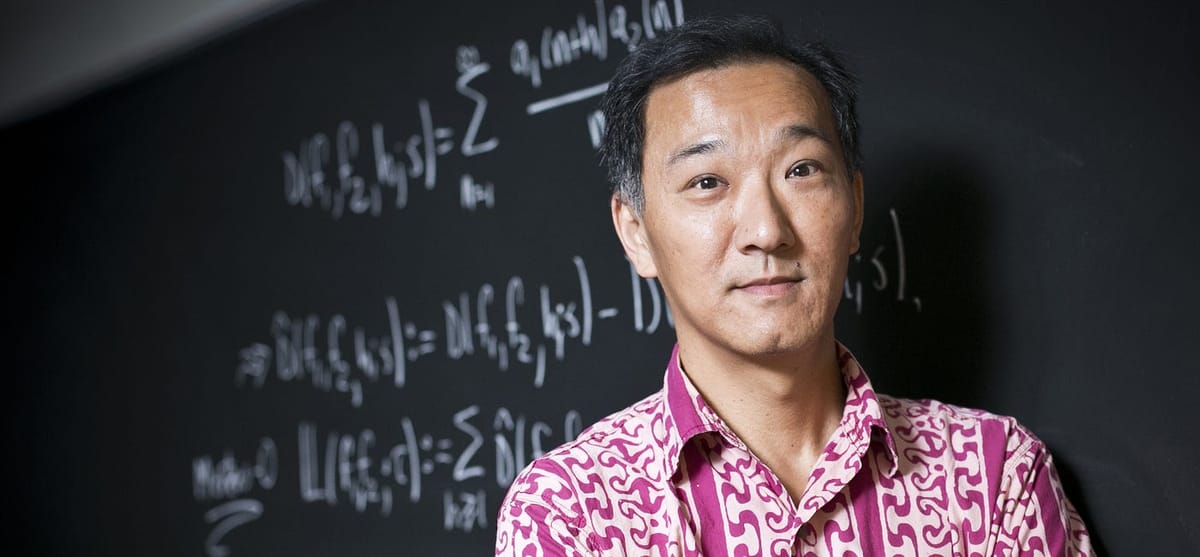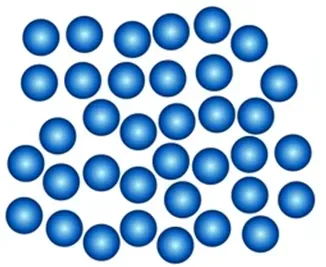Interview with Mathematician Ken Ono
I recently had the privilege of interviewing Ken Ono, one of the most brilliant Mathematicians in the world. Not only has he made huge…

I recently had the privilege of interviewing Ken Ono (1968-), one of the most brilliant mathematicians in the world. Not only has he made huge contributions to the field of number theory and was also a mathematical consultant for the Hollywood film The Man Who Knew Infinity, but his unique, inspirational story can provide valuable lessons to anyone, regardless of what they are pursuing.
Right from the start, Ono grew up with expectations to become a mathematician. His parents believed that achieving high test scores and pursuing a higher education was the best way to succeed. However, Ono didn’t necessarily agree with this. He initially dropped out of high school, but later was able to earn admission for an undergraduate degree in mathematics at the University of Chicago and then pursued a PhD in Mathematics at UCLA.
Ono’s career took a huge turn when he was introduced to Srinivasa Ramanujan(1887–1920), an Indian mathematician who is widely considered one of the greatest mathematicians of all time. Ramanujan, who grew up poor and lacked proper education to begin with, discovered formulas and theorems that changed mathematics forever, such as the Ramanujan-Nagell equation, Ramanujan’s Sum, and Ramanujan’s Pi Formula.



However, at first, most of his fancy formulas and findings were done without proofs and proper methodology. After writing a letter to Professor G.H. Hardy at Trinity College in Cambridge regarding his work, he was invited to work alongside Hardy, which he then learned more about proofs and received formal teaching. Hardy and Ramanujan went on to discover more theorems and proved some of Ramanujan’s previously written formulas. Unfortunately, Ramanujan died at an early age due to amoebiasis. His legacy and impact lives on forever, and his work will never be forgotten.
Ken Ono considers Ramanujan as his guardian angel. However, it wasn’t only Ramanujan’s fancy formulas and theorems that inspired Ono, but rather, his life story.
You stated that Ramanujan was your guardian angel, how did he guide you throughout your life, and what are some important lessons you learned, both from Ramanujan and your experiences?
In the early 1980's, a letter came to our house from Janakiammal (Ramanujan’s widow). This letter thanked my father as well as other mathematicians in the world for helping to pay for the building of a sculpture of Ramanujan. It was an emotional experience for my father, and I learned that this inspirational figure, an amateur, whose ideas which we were told came from a goddess, ended up inspiring hundreds of the best mathematicians in the world. It was meaningful to me since dozens of mathematicians would all donate to help build a structure of a man they have never met, but what was really meaningful to me was what my dad said: “Nobody really understood how he got his ideas, in fact, he dropped out of college, twice.” And that’s the first time I ever heard that you could be something that my parents could look up to without the accolades such as grades and awards. This was really important to me.
In my undergrad, when Ramanujan was first important to me as a role model, I learned firsthand that there could be a person whose achievements were so singular that my parents could look up to them without the fact that Ramanujan never graduated from a prestigious school and never got straight A’s. This gave me a lot of hope because inside I know that to get good grades and good test scores- as useful as that might be- doesn’t make you a happy person.
What is one piece of work you worked on that was inspired by Ramanujan?
Between my 3rd and 4th year of college, I looked up to Ramanujan and was able to achieve my highest grades, which allowed me to pursue graduate school. As a graduate student, I was reminded of Ramanujan even more because Robert Kanigel’s book The Man Who Knew Infinity, was published. I read it with my advisor, and by that time, I knew enough math- and for whatever reason, call it an accident if you like- some of the things I was studying had been influenced by Ramanujan’s papers.
So I made this deal with my advisor to use Ramanujan’s papers to build upon work from mathematicians such as Serre and Swinnerton-Dyer that no one had one. This was a great choice since not only did Ramanujan help me for the third time in my career and also helped me get to the point where I could write a PhD paper, but this accidental choice resulted in me working on Galois Representations, and within a year and a half, Andrew Wiles would use Galois Representations to prove Fermat’s Last Theorem. And because I studied Ramanujan, I was one of 10 people in the world who knew what Wiles was talking about, since the proof was extremely difficult.
You’ve considered Ramanujan as more of a poet than a pure mathematician. I agree with this as well. In G.H. Hardy’s speech at Harvard after Ramanujan’s death, he mentioned how at a young age, Ramanujan had already written proofs for Euler’s Theorems of Sine and Cosine before even reading the proof. How do you think he developed this quick intuition? Many people suggest that his upbringing and Hindu background was a part of the reason for his strong intellect at a young age. What do you think of this?
I think certainly for students today, what you read in passages of textbooks initially seems so strange. But we live in a time where information is somewhat cheap; you don’t have to walk to a library, look up a book, and bring it back home. Now try to imagine an era where this was literally impossible. In fact, for Ramanujan, there weren’t even any libraries, and let alone, he only had a small set of books. So for someone who is really inquisitive, who wonders, Ramanujan isn’t very unique, since a lot of kids at a young age are curious.
However, to Ramanujan, his passion for mathematics was so strong that even at an era where information was hard to access, he took it upon himself to solve theorems and equations, and to find patterns. This passion is what I think led him to develop such intuition and write papers and notebooks.
There’s a popular claim that Ramanujan discovered the mathematics for Black Holes before the idea of Black Holes even existed. What’s your opinion on this?
That claim is not quite fair. He discovered functions that we use now to study black holes before anyone defined what black holes were. If you were to explain to him that people were trying to find models for the universe and higher theories of gravity, Ramanujan was rather interested in numbers and patterns of numbers. In fact, he didn’t even have the proper physics background to make such claims about Black Holes. But it is true that in his Lost Notebook that he wrote down formulas that we now use to study Black Holes.
What are Ramanujan’s Lost Notebooks, and what are some unique insights we can gain from them?
Ramanujan left behind 3 traditional notebooks filled with his formulas before he left to England to work with Hardy. When he returned to India in 1919, despite the fact that was very ill and despite the fact that he had a hard time finding a permanent home (he moved around a lot), he still did his individual math research in isolation. Initially, his findings were written on pages, but after he died, his wife Janakiammal, sent those pages to Hardy who then forwarded them to his colleague G.N Watson, who then, to some extent, studied those pages and even wrote some papers on them. When Watson died and when they cleaned out his office, they found these pages, which were then dispatched to the library at Cambridge, where they sat ‘forgotten’ for around 30 years.
What’s a message you have for anyone pursuing math, or any theoretical subject?
At the end of the day, I cannot deny that there’s a benefit to getting good grades and chasing academic honors. People who do very well earn these things, but it could come at a price. If, as a student, your aim is to get the highest GPA and mindlessly earn prestigious credentials, then you’re not actually preparing yourself to becoming a proper academic. A good scientist knows how to assemble a proper Research Program, which requires being able to ask good questions, questions that are timely and lead to big theorems and results, which doesn’t necessarily replicate the test-taking mindset. And for a lot of successful scientists, it’s not a surprise that they didn’t do very well in the subjects that they become known for. It’s really not that unusual. But like I said, I can’t deny that getting good grades can be helpful. So the recommendation isn’t that you shouldn’t do well in school, but that you should really think deeply about the subjects that you find interesting and to develop wonder in these fields. You’re also never living for someone else. If you write a paper, or pursue a subject because someone different from yourself will be impressed, then you’re using your time for the wrong reason.





